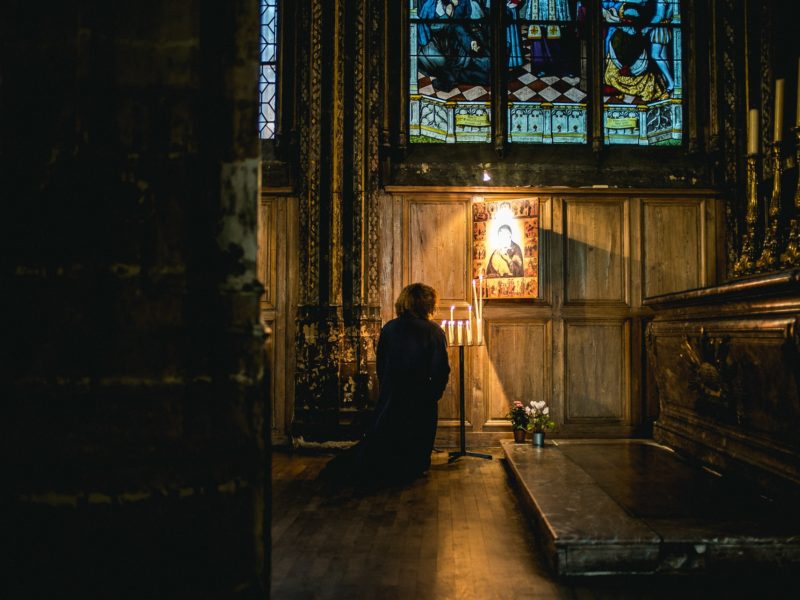
This is the sixth installment in the Critical Dementia Skills (CDS) series. For more information on the series, start HERE. You can also click on the CDS tags in the blog for more.
This CDS article, as with all first articles (those ending in”.0″), will introduce the idea of ensuring that a care partner and their loved one stay can practice their Catholic faith and stay connected to their parish activities.
Dementia is a broad term used to describe a group of chronic symptoms that may include memory impairment disrupting everyday life, diminished judgment, inability to plan, challenges with words and communicating, disorientation of time and place, and other symptoms. Dementia can be caused by Alzheimer’s disease, Dementia with Lewy Bodies, vascular dementia, frontotemporal degeneration, or other irreversible diseases.
We know from the research studies that religion and/or spirituality can be a source of peace and comfort for persons living with dementia and care partners. These studies covered a wide range of faiths and covered topics of personal practices, larger rituals as a community, and being active in faith community activities. (See this PDF for more information later)
Getting Started
Set up an appointment to speak with your Pastor to let him know that your loved one may be showing signs of dementia or has a probable diagnosis. Consider their initial advice and ask if a meeting can be set up. The first one may or may not include your loved one with dementia, but future meetings should include them. Offer a basic agenda of concerns, knowing that this is a complex scenario and it will likely take several meetings. Your Pastor may ask you to meet with another priest or with a deacon who may have more expertise in this.
Suggested Topics for the Agenda for the Meeting(s)
- Summary of the medical condition
- How dementia may be impacting the family relationships
- How dementia is an obstacle or could be an obstacle to practicing the faith, including and not limited to:
- Participating in Reconciliation
- Receiving Holy Communion
- Behavioral expressions considered to be sinful or worrisome
- A care partner telling a ‘therapeutic lie’ to their loved one with dementia to calm them
- What sacraments and blessings can be received now and/or in the late stages
- End of life care planning consistent with the Catholic teaching and bioethics
- How the condition may impact current or future involvement in parish ministries or even daily/Sunday Mass
- What support the parish ministries can do to support (e.g. support groups)
- If the person living with dementia is not Catholic but wishes to be
We are excited to explore the above subtopics in future articles and podcast episodes. These are very important matters and deserve full attention. As usual, we invite you to put this education into practice with some questions.
Questions for you to think, write down, and share in the comments section (any or all):
- Have you approached your Pastor with this topic or even the subtopics?
- If you have, what were the results?
- If you have not, what is your obstacle in meeting with him?
- What subtopics would you recommend to be added to the list?
- What other comments would help families in this situation?
Thank you for reading this far and for commenting. Let’s tell hundreds more care partners about this concept by sharing the article. God bless you.
Join the weekly email newsletter and receive new articles when they are available. Click HERE.
If you like this an want to support more education and outreach, visit our Patreon Page for options: https://www.patreon.com/PeaceWithDementia



